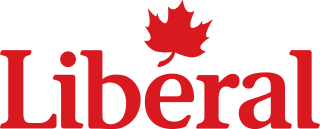The 1985 Toronto municipal election was held to elect members of municipal councils, school boards, and hydro commissions in the six municipalities that made up Metropolitan Toronto, Ontario, Canada. The election was held on November 12, 1985.
The 1980 Toronto municipal election was held on November 10, 1980 in Metropolitan Toronto, Ontario, Canada. Mayors, controllers, city councillors and school board trustees were elected in the municipalities of Toronto, York, East York, North York, Etobicoke and Scarborough.
The 1974 Toronto municipal election was held on December 2, 1974 in Metropolitan Toronto, Ontario, Canada. Mayors, controllers, city councillors and school board trustees were elected in the municipalities of Toronto, York, East York, North York, Etobicoke and Scarborough.
Municipal elections were held in Toronto, Ontario, Canada, on December 1, 1969. Across Metro Toronto there were few surprising results, and city of Toronto incumbent mayor William Dennison was easily re-elected. The one dramatic exception to this was on Toronto city council, where a number of long-standing members lost to young new arrivals who shared a common vision of opposition to the megaprojects that had transformed Toronto throughout the post-war period. While the reform movement candidate for mayor lost, it gained a strong presence on city council. The 1970s reform faction dominated Toronto politics for the next decade.
The 1972 Toronto municipal election was held December 4, 1972, to elect the governments of Toronto, Ontario, Canada, the five other boroughs, and the government of Metro Toronto as well.
Municipal elections were held in Toronto, Ontario, Canada, on December 5, 1966. The elections were the first for Toronto after its merger with several smaller suburban communities on January 1, 1967. Forest Hill and Swansea were annexed by the City of Toronto, Leaside was merged with the Township of East York to become the Borough of East York. Weston was combined with the Township of York to form the Borough of York. The Village of Long Branch and the towns of Mimico and New Toronto were merged with the Township of Etobicoke to form the Borough of Etobicoke.
Municipal elections were held in Toronto, Ontario, Canada, on December 3, 1962. Incumbent mayor Nathan Phillips, then the longest-serving mayor in Toronto history, lost to Controller Donald Summerville by a significant margin.
The Board of Control of Toronto, Ontario, Canada, was a part of its municipal government until it was abolished in 1969. It served as the executive committee of the Toronto City Council, consisting of four "controllers" elected citywide and presided over by the Mayor. Beginning in 1904, the Board of Control was directly elected by the city's electorate. Each voter could vote for up to four candidates, and the four with the most votes were elected. By tradition the controller who received the most votes would get the powerful budget chief position.
Municipal elections were held in Toronto, Ontario, Canada, on December 5, 1960. Six-year incumbent mayor Nathan Phillips was challenged by former mayor Allan Lamport and Controller Jean Newman. Phillips was returned to office.
Municipal elections were held in Toronto, Ontario, Canada, on December 1, 1958. Four year incumbent mayor Nathan Phillips won reelection against Controller Ford Brand, who was supported by the Co-operative Commonwealth Federation and Toronto Labour Council, and Controller Joseph Cornish.
Municipal elections were held in Toronto, Ontario, Canada, on December 3, 1956. Incumbent mayor Nathan Phillips was easily reelected. Jean Newman became the first woman elected to the Board of Control, and topped the poll to become budget chief.
Municipal elections were held in Toronto, Ontario, Canada, on December 5, 1955. Incumbent mayor Nathan Phillips, elected a year earlier, was easily reelected.
Municipal elections were held in Toronto, Ontario, Canada, on December 6, 1954. Incumbent mayor Leslie Saunders was defeated by Nathan Phillips in a close contest.
Municipal elections were held in Toronto, Ontario, Canada, on December 7, 1953. Incumbent mayor Allan Lamport won an unexpectedly close race against school board trustee Arthur Young. This election was the first for councils in the municipality of Metropolitan Toronto which would be created on January 1, 1954 and was composed of 14 municipalities: the City of Toronto, the towns of New Toronto, Mimico, Weston and Leaside; the villages of Long Branch, Swansea and Forest Hill, and the townships of Etobicoke, York, North York, East York, and Scarborough.
Municipal elections were held in Toronto, Ontario, Canada, on December 1, 1952. Incumbent mayor Allan Lamport easily won against former alderman Nathan Phillips.
Municipal elections were held in Toronto, Ontario, Canada, on December 3, 1951. Allan Lamport defeated incumbent Hiram E. McCallum in the mayoral election.
Municipal elections were held in Toronto, Ontario, Canada, on December 4, 1950. It was the second time the elections were held in December ; traditionally elections occurred on New Year's Day. Incumbent mayor Hiram E. McCallum narrowly defeated Allan Lamport. The defeat of Norman Freed and the failure of Charles Sims to regain his seat would bring to a close the communist Labor-Progressive Party's presence on Toronto's City Council though the party, and its successor, the Communist Party of Canada would continue to elect members as school trustees for several decades.
Municipal elections were held in Toronto, Ontario, Canada, on January 1, 1948. Robert Hood Saunders was re-elected as mayor in an election that also saw no changes on the Board of Control or City Council.
Municipal elections were held in Toronto, Ontario, Canada, on January 1, 1946. Incumbent Robert Hood Saunders was acclaimed as mayor.
Municipal elections were held in Toronto, Ontario, Canada, on January 1, 1936. Sam McBride was elected mayor in a three-way race in which incumbent James Simpson finished third.


